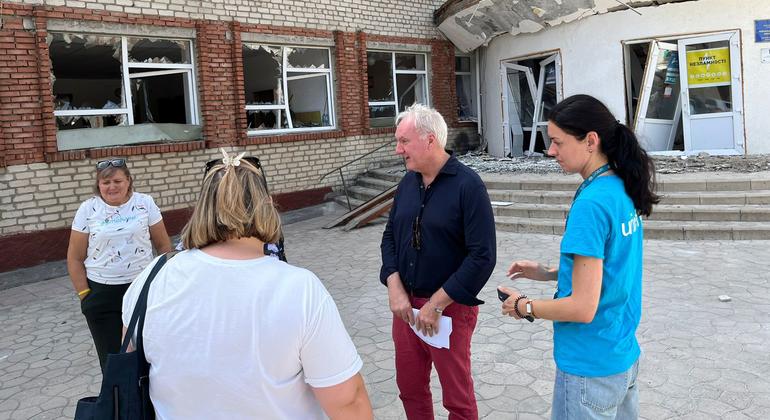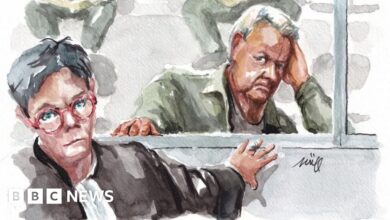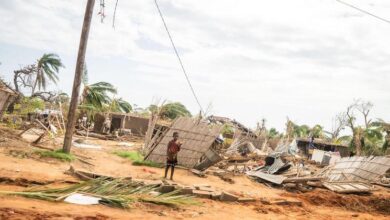National coordinator warns: ‘We must not normalize war in Ukraine’


The top United Nations official in the country – who also coordinates all of the organization’s humanitarian operations there – stressed the urgent need for peace, justice and sustained international support.
Particularly in October and November, More than 2,180 civilian deaths and injuries have been verified.
The intense fighting also led to a wave of evacuations, with Nearly 40,000 people had to evacuate from the front line in the past two months.
The elderly and people with disabilities are most affected
Mr. Schmale emphasized the growing vulnerability of marginalized groups while recounting his meeting with two elderly evacuees in Dnipro who shared their despair after losing everything to war. .
“Understandably, they expressed pessimism about a better future,” he noted.
He expressed concern for people with disabilities when he observed their situation firsthand during a visit to a transit center.
“I have observed how incredibly difficult it is for people with disabilities to cope with trauma and disruption caused by the ongoing war,” he emphasized.
Resilience in crisis
Amid the devastation, frontline humanitarian workers continue to serve communities in crisis.
In Donetsk, doctors and medical staff, supported by the authorities World Health Organizationproviding essential health care in extremely harsh conditions.
However, as Ukraine enters its third winter since the full-scale invasion, sub-zero temperatures and systematic attacks on energy infrastructure pose significant risks.
Recent strikes in late November and mid-December caused widespread power outages, affecting millions of people and leaving vulnerable residents in high-rise buildings without functioning heating, clean water or wastewater treatment systems.
“The attacks have worsened the situation for the most vulnerable populations,” the coordinator warned.
Solve the winter crisis
The United Nations Winter Humanitarian Response Plan aims to address urgent needs, including solid fuel supplies, cash assistance and water system repairs.
However$500 million is needed to fully implement these efforts by March 2025.
Besides, a broader humanitarian appeal for $2.2 billion is being prepared for 2025 to support approximately 12.7 million people.
This includes maintaining early recovery programs, such as education, while also addressing critical emergency needs.
Concluding his statement, the Resident Coordinator delivered a strong message: “We must not normalize the war in Ukraine.”
“The guns must be silent and there must be peace with accountability and justice served Completely respectful UN Charter and the territorial integrity of Ukraine,” he emphasized.




